
Why did the marketer get off the trampoline?
Because he was worried about his bounce rate!
If you’re a regular reader of the KeyScouts blog, or even if you’re a regular reader of any digital marketing content, this probably feels like a very strange way to start an article.
The reason for this is the joke we started with isn’t in keeping with our voice, and it’s not in keeping with the voice you expected when you came to this blog. The KeyScout voice is authoritative and professional, yet friendly and conversational, and when you’re presented with something that deviates from the norm as the above joke does, you immediately think something’s off.
This goes to show the importance of your brand voice, so how can you establish your own voice to improve the performance of your B2B marketing?
What is Brand Voice?
Brand voice is the way you express your business’s personality through communication. It helps give you an identity beyond your products and services and creates an emotional connection between you and your customers.
Think about a company like Apple, and what words would you use to describe them?
Some words you might think of are confident, brash, inclusive, cool, simple, clean, and many more. However, these beliefs about the brand aren’t simply born out of experiences with their products; they come from the consistency of voice Apple has.
Take these examples all taken from Apple’s homepage:
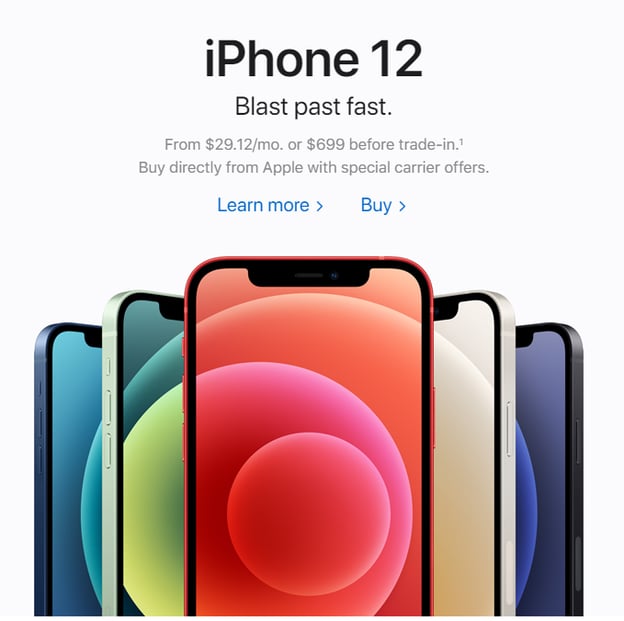
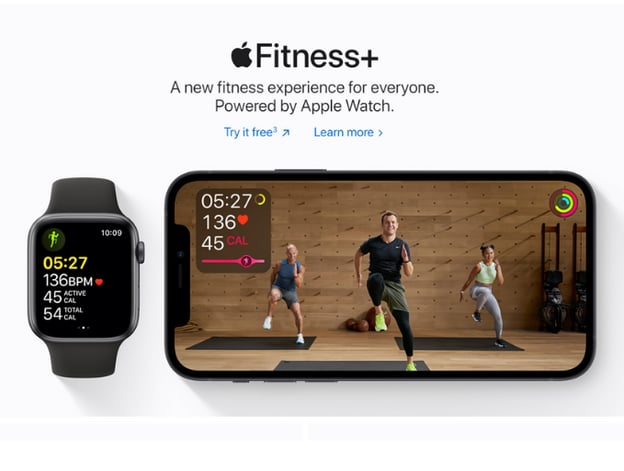
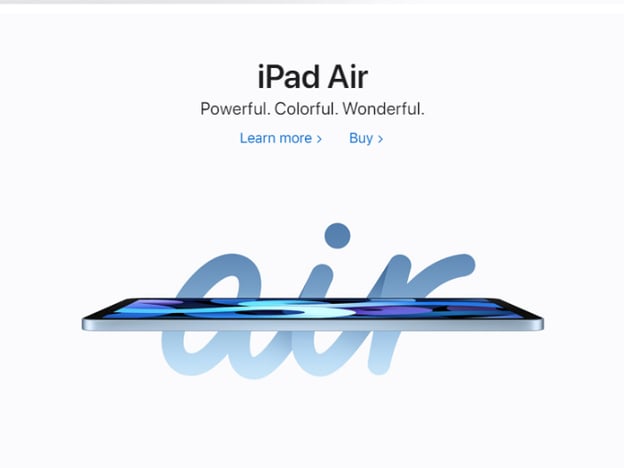
“Blast past fast,” “a new experience for everyone,” “Powerful. Colorful. Wonderful.” These all have the hallmarks of Apple’s strong, slightly cocky, yet highly inclusive voice, and people remember them for it (Apple was ranked the world’s strongest brand in 2019.)
Just as with Apple, finding the voice that appeals to your target audience, and being consistent with it is a powerful way to boost your B2B marketing.
Why is Brand Voice Important?
No matter what business you’re in, there’s going to be competition. The difference between your products and services and your competitors’ might be minute, and yet there’s a reason some people keep coming back to you and some keep going to your competitors.
When we’re dealing with real-world transactions, we will often put this down to personality, relationships, and customer service, but often we don’t think of the same principles when it comes to the online world. However, personality - your brand voice makes a huge difference online as well, and it can be that small detail that keeps people coming back to your website rather than your competitor’s.
The internet gives people a huge amount of choice, and they are quick to use it, but if they identify with the character your brand voice portrays, then they’re likely to keep coming back to you.
A strong brand voice will:
- Set people’s expectations - keeping them on your pages longer
- Give people an emotional attachment to your business
- Link your digital marketing efforts together (social, email, content, etc)
- Set your business apart from the competition
If you look at B2B products for services such as SEO software, in reality, there isn’t much between what companies like Ahrefs, Moz, and SEMrush offer, but a quick look at each of their homepages gives you an insight into how they use voice to appeal to different audiences.
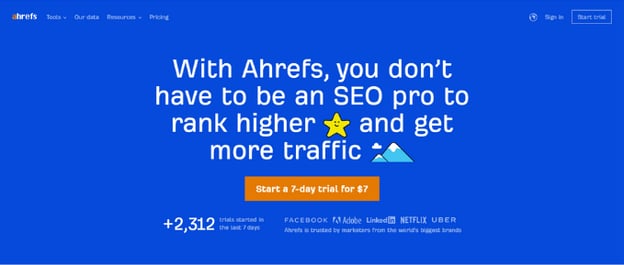
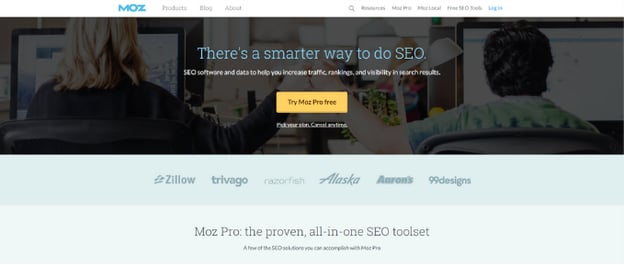

It’s quite striking how Ahrefs has gone for a more informal voice, whereas Moz is much more straight to the point, and SEMrush exudes confidence. They’re writing virtually the same copy, but their individual voices have meant that they come across extremely differently.
Your business has the same ability to use its voice to appeal to different audiences.
How to Establish Your Brand Voice
-
What’s Your Company All About?
-
Use What You Already Have
-
Understand Your Audience
-
Ask Your Audience for Feedback
-
Codify Your Findings
A great place to start when considering your brand voice is by looking at your mission statement. This should summarize what your company is all about, and from here, you can decide how your voice should portray those sentiments.
For example, if a key part of your mission statement is being environmentally friendly, then this might well feature heavily in the words you use and the voice your brand takes on. You might use words such as “conscientious,” “forward-thinking,” or “ethical” to define your voice.
Your mission statement is an integral part of your business, and it’s only natural that your brand voice should take cues from it.
If you’ve already got content, then it’s well worth performing a content audit (Google Search Console can help with this) and analyzing the voice you use in it. Look at your most successful content and see if there is a consistent voice that your audience seems to be identifying with.
Likewise, take a look at the content that’s not doing so well - it might have a high bounce rate or low average time on page, and see if there is something in the voice that’s putting people off.
Imagine the piece of content as a person telling a story and ascribe adjectives to it. What words do you come up with, and are those the kinds of words you want to be used to describe your business?
As much as your voice is there to showcase the characteristics of your business, it’s also there to engage your potential customers and to do this, you’ve got to understand your target audience.
If you don’t have buyer personas already, then it’s time to delve into your ideal customers and learn more about them. Once you understand their problems, needs, desires, and other traits, then you can start to ask yourself “what voice will these potential customers respond to best?”
We mentioned this in our Guide to Email Marketing, and it’s something that’s often under-utilized - asking your audience. Your audience - the people who visit your website, and engage with you on social media are great sources of information for your business, and all you’ve got to do is ask.
Put a little survey on your website, or post questions on your social media platforms, and ask about the kind of voice people want to hear from your business.
One of the main reasons for creating content and finding your brand voice is to boost engagement with your target audience, so why not ask them how you can do this?
One of the difficulties with your brand voice is being consistent. You’re posting to lots of different platforms, with different people creating content, and you might well be using a variety of freelancers.
It’s important that whenever someone creates content for you that they have your brand voice in mind though.
To do this, you’ve got to take all your research and turn it into simple guidelines anyone can follow. Create a brand voice chart with words that describe your company’s voice, and some simple do’s and don’t that people should follow.
Make sure this is prominent in your content guidelines, and really make sure editors are attuned to the brand voice.
Takeaways
We all understand how branding is beneficial for B2B marketing, but fewer companies are highly attuned to their brand voice. The voice your business conveys through its marketing is going to have a big impact on how your customers perceive your company though, and it’s something that needs to be consistent throughout your marketing efforts.
Your business might not be a human, but there are humans behind it nonetheless, and it does have a character. Establishing your brand voice is your opportunity to show some of that personality, creating an emotional connection with your audience, and marking you out from the competition at the same time.
Once you’ve established what you want your voice to sound like, then you can make sure you’re consistently implementing it throughout your marketing efforts. This can help you to connect with your audience better, boost your rankings, and even make more sales - and it’s simple to do!




